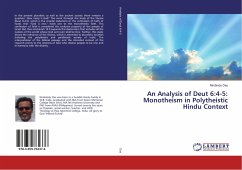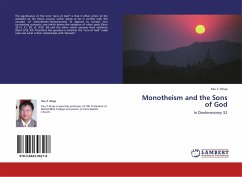High Quality Content by WIKIPEDIA articles! In theology, monotheism is the belief that only one God exists. The concept of "monotheism" tends to be dominated by the concept of God in the Abrahamic religions, such as Judaism, Christianity, Islam and Druze, the Platonic concept of God as put forward by Pseudo-Dionysius the Areopagite, as well as the Advaita, Dvaita and Vishishtadvaita philosophies of Hinduism, although the latter philosophies admit the existence of a plethora of divine beings. These Hindu philosophies also believe in less powerful entities, such as devas. Due to its Abrahamic association, the concept of monotheism has often been defined in contrast to polytheistic and pantheistic religions, and monotheism tends to overlap with other unitary concepts, such as monism. However, there are several examples of pantheistic religions that only adhere to one divinity, and therefore, in its strict sense, could be regarded as monotheist, for example Zoroastrianism. Ostensiblymonotheistic religions may still include concepts of a plurality of the divine. For example, the Trinity in which God is one being in three personal dimensions.
Bitte wählen Sie Ihr Anliegen aus.
Rechnungen
Retourenschein anfordern
Bestellstatus
Storno








